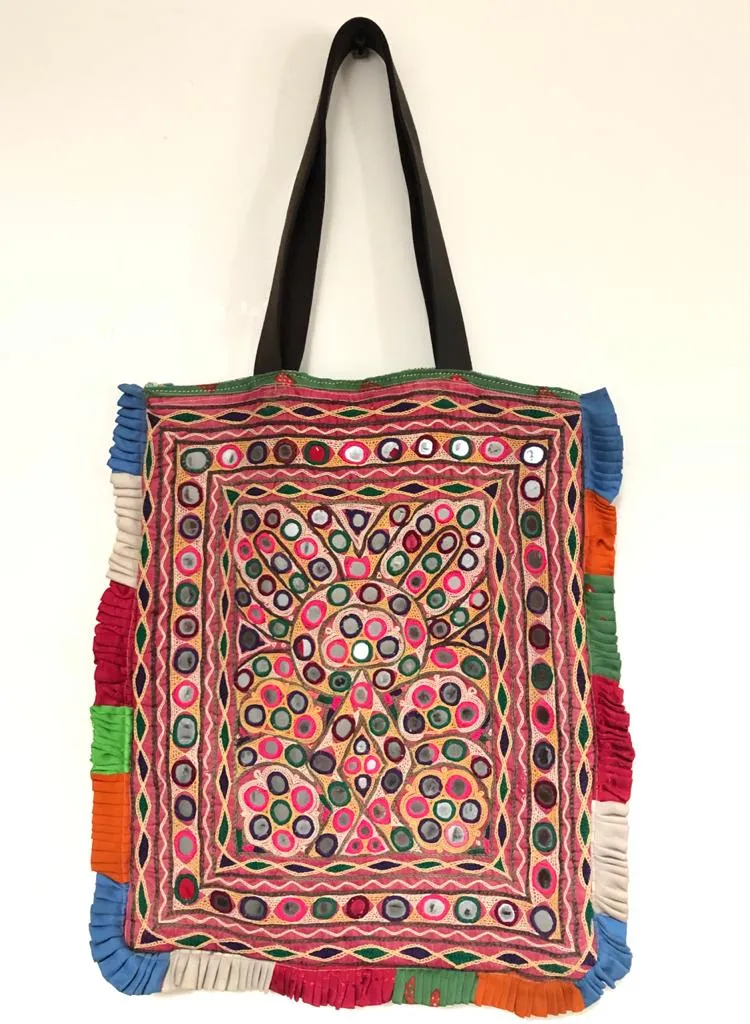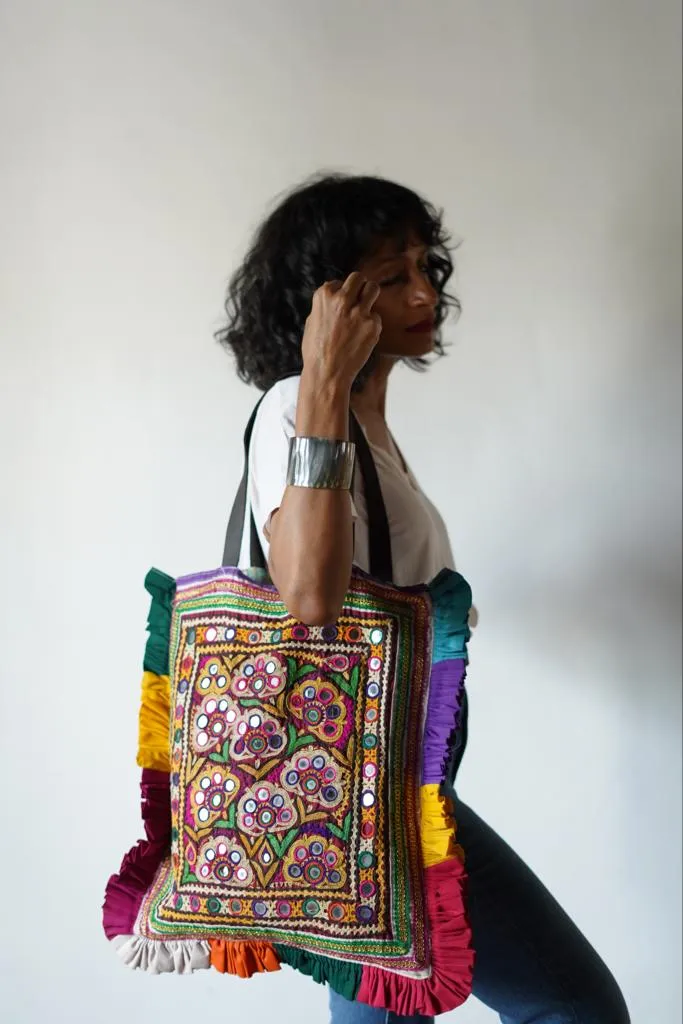





You are carrying a piece of cultural history. A handmade bag with stories woven in between. All we did was preserve these pieces and bring it back to life. The only change we added was a simple leather handle and a lining to make it more durable.
Rabari embroidery gets its name from its community from Bhujodi, who were a nomadic/ semi nomadic community of cattle raiser living in the western region of India, from Rajasthan to the Kutch region in Gujarat.They migrated into this region from Sindh (now in Pakistan) about 400 years ago and many of their relatives still live there.
They have wonderful stories about their origin, ranging from a connection with Shiva to Rajputs going outside their territories. Rabari, or Rahabari means one who lives outside or goes out of the path.
The type of embroidery on the garment clearly distinguishes the person's identity, the different communities of Rabaris can be identified from the type and placement of embroidery on their odhanis (veils for head and shoulders).
- Rabari embroidery is characterized by chain stitches and a generous use of mirrors. The women depict the world around them, without the help of sketches or patterns. The only material used is a simple needle and thread, which they purchase from Bhuj, the nearby town.
- The stark landscape of Kutchh with its thorny babool and keekar bushes is given a new dimension with colours, by the vivid imagination of Rabari women, through chain stitches decorating the surface of cloth.
Dimensions: 16x15
